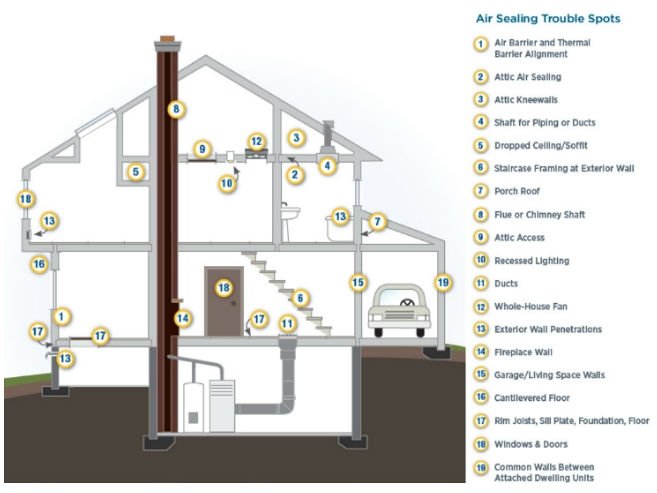How to Keep Your Home Heating Efficient This Winter
There’s nothing worse than coming home to a cold house and a broken heater. A close second? Paying through the roof for your heat—and burning through fuel because your home isn’t as efficient as it could be. To help, we’re listing some tips and tricks you can use to keep your home comfortable and warm while helping you save energy and money on your home heating oil costs.
1. Limit Drafts and Potential Heat Leaks in Your Home
According to energy.gov, simply adding curtains to your rooms can reduce heat loss this winter by a staggering 10 percent. By sealing the drafts around your windows, doors, chimneys, etc., you can quickly and drastically reduce the amount of oil your home heating unit needs. Below, take a look at some of the most common places heat is lost during the winter months.
2. Clear Your Vents from Obstructions
One of the easiest ways to ensure your home is efficient and comfortable this winter is to make sure your vents aren’t covered by things like furniture or curtains. If your heating ducts are blocked, your room won’t heat effectively, making your heater work harder for longer. Knowing this, take a quick walk around your home to make sure your heating ducts aren’t being obstructed.
3. Keep Your Thermostat Adjusted
According to the U.S. Department of Energy, you can save up to 10 percent on your heating costs by changing your thermostat when you’re sleeping or out of the house. If you use a programmable thermostat or smart thermostat like nest, you can automatically set your thermostat to turn down the heat at bedtime or when you’re not home.
4. Use Your Ceiling Fans and Not Your Kitchen Fans
We’re sure you know that heat rises, but did you know that the ceiling fans you use in the summer can keep that warm air down in the winter—and save you up to 15 percent on your heating bill? By changing the rotation of your fans in large areas like living rooms/family rooms to spin clockwise, you’ll keep warm air in your home longer. Alternatively, refrain using the stove fan, which sucks the hot air out of your home.
5. Replace Your Air Filters
To ensure your home heating unit operates at peak efficiency, make sure your heating system’s air filter is free of excess buildup and grime. An old filter will make your heating unit work harder, use more energy, and subsequently cost you more money. As a rule of thumb, you should change your filter every 2-3 months.
6. Maintain Your Heating System with Regular Tune Ups
Just like regular service to your car engine improves mileage and performance, the same thing applies to your home. By maintaining your home heating unit, you can ensure it operates as efficiently as possible saving, your heating costs during the winter. Plus, properly servicing your heating unit significantly reduces the chances your unit will break down this winter.


